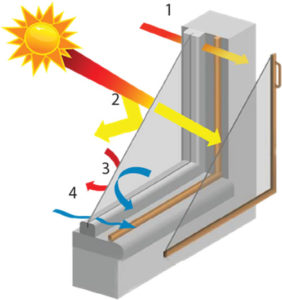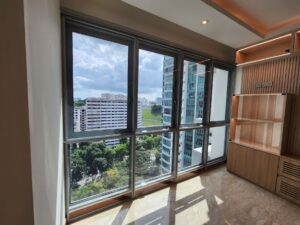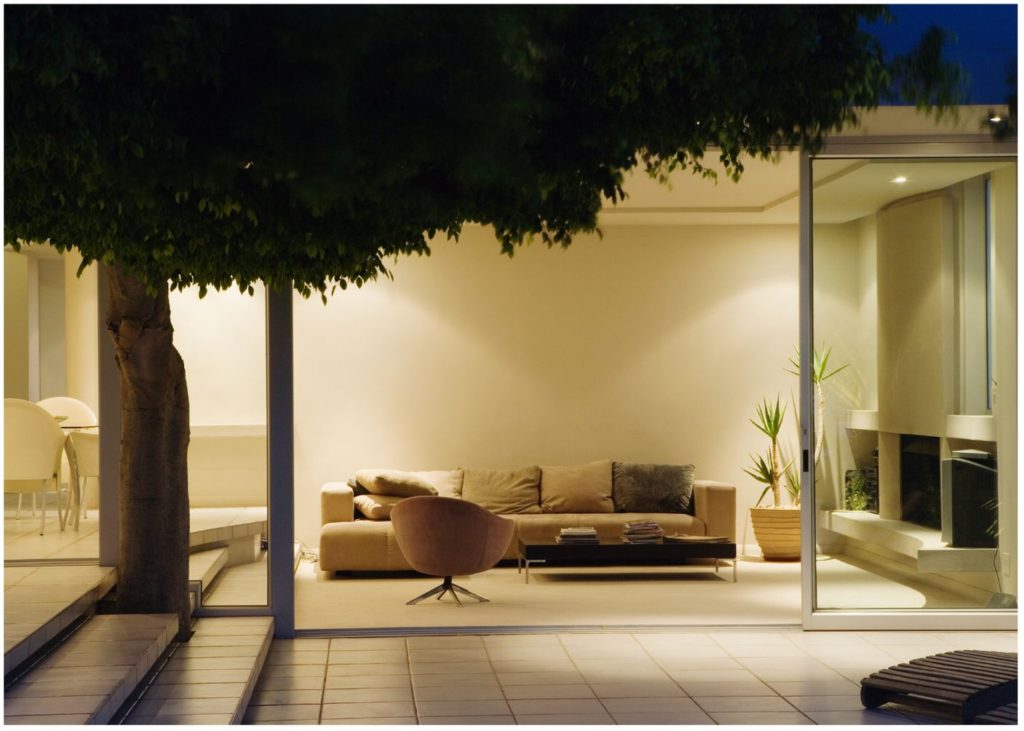
Sliding windows and doors are very popular in South-East Asian homes where space is at a premium. They open without protruding in or out, and are the preferred choice for rooms along common corridors and walkways to avoid collision with people walking past, especially for HDB flats. Sliding doors allow for large glazing areas to make the most of beautiful views and allow easy access to outside spaces.
Sliding windows require no hinges and the simplicity of these windows makes them a more affordable option for many buildings. Unfortunately, these sliding windows might very well come at an extra cost that homeowners are not aware of.
Flooding of the living room in heavy rain, nerve-wrecking rattling of the panels in the wind and feeling like every motorbike going past is driving straight through your bedroom are common problems with sliding systems.
Sliding panels are sadly often the worst performing windows and doors in the house when it comes to sound insulation, water and air tightness and energy efficiency. Their issue lies less in the material used but the basic structure is the problem which does not allow for tight sealing.
In-line sliding panels sit on top of a track insulated with brush seals and need to be quite loose to be easily pushed to the side.
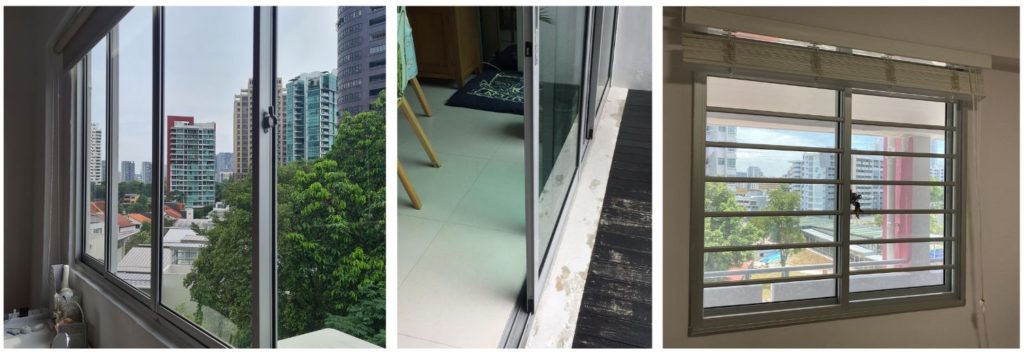
For soundproofing and energy efficiency we want the opposite – tightness.
We need to make sure that no air can travel from the outside to the inside. If air can come in, so can sound. With a sliding window no compression (which is necessary to enable tightness) can be achieved. Not only that, but these seals need to be flexible to enable the smooth opening and closing of the panel. After some time, the continuous opening and closing of the sash often results into the seals being slightly dislocated, resulting in additional reduction of tightness. Furthermore, sliding doors are designed with weep holes in the track to allow for water drainage which often allows air to travel through and with it noise and heat. This reduction of tightness compared to other opening types, like casement windows, means that sliding windows are generally less energy efficient and do not block sound out very well. If clients have a room with a sliding door and a room with push out windows they can often notice a marked difference in noise levels from one room to the other.
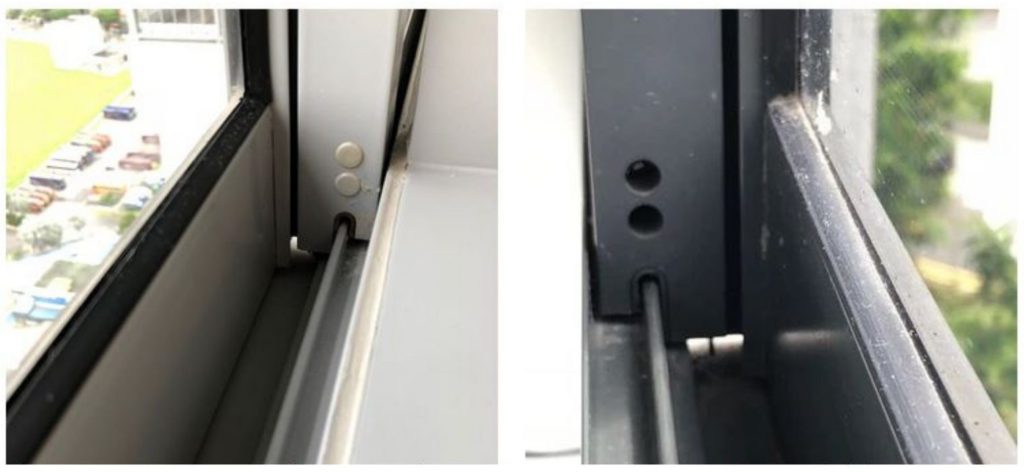
These two Singaporean standard windows above (the first in a DBSS, the second in a 6-year old condominium) demonstrate clearly the typical problem – once the brush seals wear out you have a direct air gap from the outside into your room.
When residents realize that there is a noise issue with their sliding doors, they often turn to glass suppliers to replace their existing glass with double glazing. Unfortunately, this will not solve the noise issue, it might make it worse. Since the main problem with the sliding door are the existing gaps and not the glass, changing the glazing does not address the source. Adding double the weight of glass to a frame and rollers designed for less can lead to future problems like warping of the frame. The extra weight could also push the entire frame down which leads to larger gaps on top and making it extremely difficult to open and close the panel. We regularly install our Slider Noise Shields on sliding doors where clients have already spent a lot of money on better glazing with no noticeable reduction in noise. We would like to put a neon sign on Orchard road saying: CHANGING THE GLASS IN A SLIDING DOOR WILL NOT SOLVE THE PROBLEM!
To get away from the noise leakage for sliding systems, you need to replace the entire system with a push-out or swing-in window or door system, which can structurally be built soundproof. For a more in-depth consideration into all the factors of a soundproof window, have a look at one of our previous articles which details the importance of soundproof materials in relation to windows. You can read it here.
If changing to push-out windows is not possible, we recommend you add a Magnetite Noise Shield to your sliding panels. With it’s unique magnetic seal and sliding solutions that do not compromise the airseal, it can achieve, even for sliding panels, a 50-70 % noise reduction. Find out more about our Noise Shield solutions here.
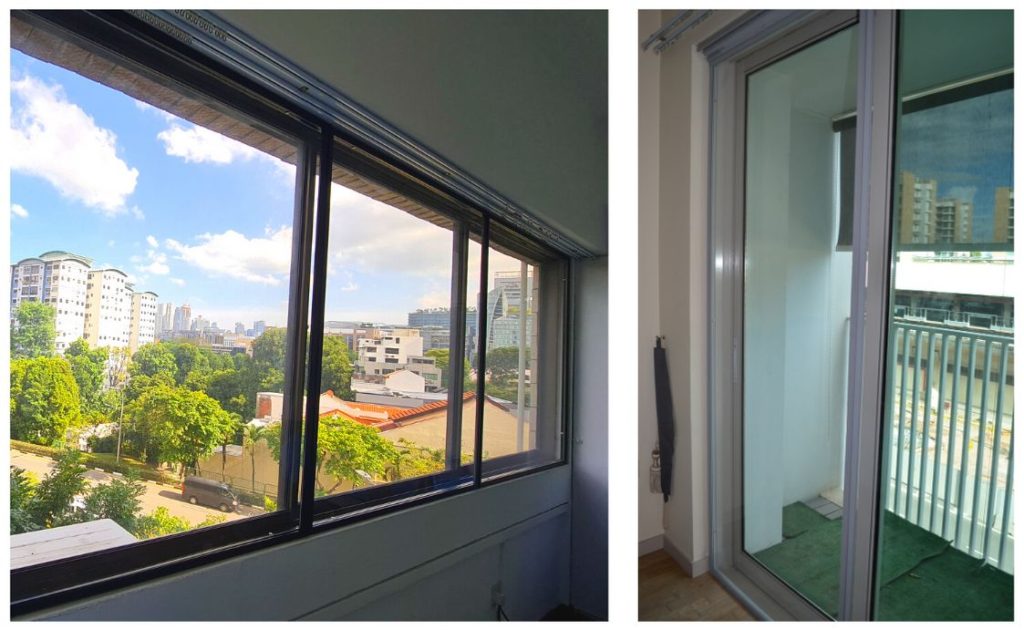
Overall, sliding windows and doors are convenient and can greatly enhance the aesthetics of a home, however, making them soundproof is extremely difficult. Our Noise Shield systems are the only effective way to reduce noise leakage through sliding panels.
For more information regarding our Noise Shields, click here.

